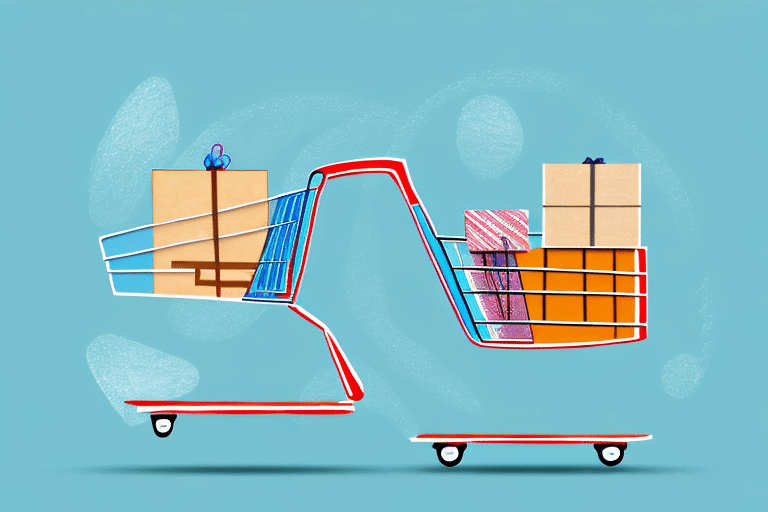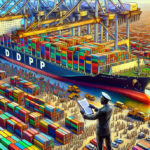Understanding DDP: Delivery Duty Paid in Ecommerce
Delivery Duty Paid (DDP) is an international shipping method where the seller assumes full responsibility for delivering goods to the buyer's doorstep, including all associated costs such as shipping, import duties, taxes, and customs clearance. This contrasts with Delivery Duty Unpaid (DDU), where the buyer handles these additional fees upon receipt of the shipment.
Implementing DDP in your ecommerce business can simplify the international shipping process, providing a seamless experience for both sellers and customers. By covering all costs upfront, DDP offers transparency and predictability in pricing, enhancing customer trust and satisfaction.
According to the Forbes Business Council, businesses that adopt DDP report a 20% increase in customer retention rates due to improved purchasing experiences.
Key Benefits of Implementing DDP in Your Ecommerce Business
Enhanced Customer Satisfaction
With all costs included in the upfront price, customers are less likely to encounter unexpected fees upon delivery. This transparency fosters trust and encourages repeat business.
Increased Sales and Market Expansion
By offering DDP, ecommerce businesses can attract a broader international customer base. The simplified purchasing process reduces barriers for customers in new markets, potentially increasing sales by up to 15% as indicated by the Statista International Ecommerce Report 2023.
Streamlined Logistics and Reduced Operational Complexity
DDP shifts the responsibility of handling customs and import duties from the buyer to the seller, reducing the complexity of international shipments. This allows businesses to focus more on core operations rather than logistical challenges.
DDP vs. DDU: Choosing the Right Shipping Method for Your Business
Cost Implications
While DDP offers a more straightforward experience for customers, it involves upfront costs related to import duties and taxes. Conversely, DDU can be more cost-effective initially but may lead to additional expenses for customers, potentially deterring purchases.
Control Over the Shipping Process
DDP provides greater control over the entire shipping process, ensuring that all materials and documentation comply with international regulations. DDU leaves the buyer responsible for navigating customs, which can result in delays and customer dissatisfaction.
Customer Experience
Implementing DDP generally leads to a better customer experience due to the elimination of surprise fees and smoother delivery processes. This can enhance your brand reputation and customer loyalty.
Implementing DDP: Costs and Strategic Considerations
Analyzing the Financial Impact
Adopting DDP involves assessing the additional costs of duties and taxes against the potential increase in sales and customer satisfaction. A detailed cost-benefit analysis is essential to determine the feasibility for your specific business model.
Leveraging Technology for Efficiency
Utilizing advanced shipping and logistics platforms can automate customs clearance and paperwork, significantly reducing the administrative burden. Tools like Easyship and Stamps.com offer comprehensive solutions to streamline DDP implementation.
Overcoming Challenges in DDP Implementation
Complex International Regulations
Navigating the diverse and complex import regulations across different countries can be daunting. Partnering with experienced logistics providers can help ensure compliance and smooth operations.
Handling Documentation and Paperwork
Accurate and timely documentation is crucial for DDP shipments. Implementing automated systems and thorough training for your team can mitigate the risk of errors and delays.
Best Practices for a Successful DDP Strategy
- Select Reliable Logistics Partners: Choose partners with proven expertise in international shipping and DDP services.
- Transparent Pricing: Clearly communicate all costs associated with DDP to avoid customer confusion.
- Efficient Communication: Maintain open lines of communication with customers regarding their shipment status and any potential issues.
- Regularly Review and Optimize: Continuously assess your DDP processes and make adjustments based on performance data and customer feedback.
Choosing the Right Tools and Platforms for DDP
Several tools and platforms can facilitate efficient DDP implementation:
- Easyship: Offers a range of shipping options, automated customs documentation, and real-time tracking.
- Stamps.com: Enables businesses to manage shipping labels, track packages, and handle international shipments seamlessly.
- ShipStation: Integrates with major ecommerce platforms to automate shipping processes and provide comprehensive tracking solutions.
Selecting the Right Logistics Partner for DDP
- Experience and Expertise: Ensure the partner has a strong track record in international shipping and handling DDP shipments.
- Reliability: Look for partners with high on-time delivery rates and minimal shipment issues.
- Cost Structure: Compare pricing models to find a partner that offers competitive rates without compromising on service quality.
- Customer Support: Opt for partners that provide robust customer service to address any shipping concerns promptly.
Effective Communication Strategies for DDP Benefits
- Website Content: Highlight the benefits of DDP on your product pages and checkout process to inform customers upfront.
- Marketing Materials: Use newsletters, social media, and other marketing channels to educate customers about DDP advantages.
- Customer Support Training: Equip your support team with the knowledge to address DDP-related queries confidently.
- Post-Purchase Follow-Up: Engage with customers after delivery to gather feedback and reinforce the value of DDP.
Future Trends and Innovations in DDP for Ecommerce
- Automation and AI: Increased adoption of artificial intelligence to predict and manage customs processes more efficiently.
- Expanded Global Reach: Growth of DDP services into emerging markets, providing more opportunities for international expansion.
- Sustainable Shipping Practices: Integration of eco-friendly practices within DDP logistics to meet growing consumer demand for sustainability.
Staying informed about these trends can help your ecommerce business adapt and thrive in the evolving landscape of international shipping.
Conclusion
Implementing Delivery Duty Paid (DDP) can significantly enhance your ecommerce business's international shipping strategy by improving customer satisfaction, increasing sales, and streamlining logistics. By carefully selecting the right tools and partners, and effectively communicating the benefits to your customers, you can leverage DDP to expand your global reach and build a loyal international customer base.






















